Keyword: Turkey

Crackdown on journalists leaves void in post-coup Turkey
That is down in large part to the gutting of Turkey’s independent press. More than 115 journalists have been imprisoned and hundreds more fired since the July 15th coup attempt, while 130 media outlets have been shuttered. That, in addition to the sacking of more than 1,000 media workers in the previous 12 months, has left crucial questions unanswered. Put simply, there is no one left – or willing – to overturn the stones on which the failed military takeover was built.

Debunking The Gülen-Erdoğan Relationship
Yes, at one time, there had been rapprochement and mutual support, but reality and history show that such an alliance has long been overstated. The truth is, Erdoğan and Gülen only came together when Erdoğan’s stated goals reflected deeply held beliefs by Gülen. As is often the case, perception is mistaken for reality. Gülen is not Erdoğan’s biggest threat, nor was he his chief ally.
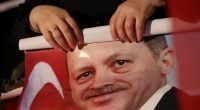
Turkey as a “serial” human rights derogator
The past couple of months have been tumultuous in Turkey. In short order, an ill-conceived military coup was followed by popular mass protest, the quick return of President Recep Tayyip Erdogan to power, and a wave of repression ranging from military and judicial purges, to state restrictions on a panoply of basic human rights protections, to allegations of “widespread human rights abuses” by state actors.

Fear Grows in Turkey as Crackdown on Gulen Followers Continues
The Turkish authorities are continuing their crackdown on followers of Islamic cleric Fethullah Gulen, who is being blamed for a failed military coup attempt. With tens of thousands of people arrested, opposition parties are starting to voice concern that the crackdown is turning into a witch hunt.
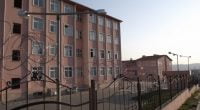
Turkish school threatens students who refuse to write poems on coup attempt
The Education Ministry distributed “Attempt to invade Turkey with coup” brochures at all state schools across Turkey. Some 19 million students also watched a video of President Recep Tayyip Erdoğan reciting the Turkish national anthem along with footage from the night of July 15, when an abortive coup took place in Turkey.

Turkey’s Erdogan Is Already Making the Most of His ‘Gift From Heaven’ After Coup Attempt
Erdogan is establishing the regime he wants even if the constitution is not amended, a regime that ensures complete loyalty, whether out of support for him or out of fear he is instilling in tens of thousands of government officials, hundreds of thousands of teachers, thousands of judges and prosecutors and army officers. The shakeup in the education system is perhaps the most significant, even more than in the justice system or the army.

Turkey’s Opposition Fails a Critical Test: To Challenge Erdogan
The CHP’s inability to seize the moment and strongly condemn the arbitrary extent and nature of the purges from the start was a critical failure, and one that serves to undermine its integrity and sustainability as an opposition force. Despite tentative but welcome signs from the CHP towards highlighting the exponential injustices of Turkey’s ongoing purge, it still seems like a classic case of acting too little, too late.
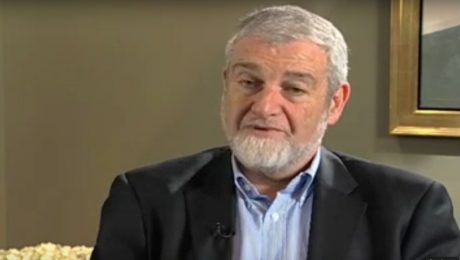
Liberal Turkish Journalists Champion Freedom of Expression, to a Degree
It’s precisely opposition journalists who have been criticized by colleagues who until recently worked for the newspapers of U.S.-based Fethullah Gulen. These colleagues accuse the opposition journalists of betraying freedom of expression. One of them is Sevgi Akarcesme who was editor-in-chief of the Turkish English-language daily Today’s Zaman. There is a great deal of truth in Akarcesme’s claims. But who today would dare defend journalists identified with Gulen?

72-year-old Turkish man detained over coup charges
Gülen movement has been accused of masterminding the coup attempt on July 15 despite its successive statements that denied any involvement. Failing to back up its accusations with credible evidence, the government has detained more than 40,000 people and arrested 24,000 over their alleged links to the coup attempt since July 15.
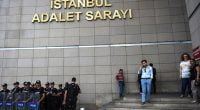
Turkey could find itself facing hefty legal bill for mass purges
In 2006, the European Court of Human Rights (ECHR) ruled that Turkish citizen Osman Murat Ulke, who refused to perform compulsory military service as an act of civil disobedience, had been subjected to “civil death” due to the numerous prosecutions he faced after his original jail sentence. Ulke’s expulsion from his profession and the prospect of an interminable series of convictions, which forced him into hiding, constituted a “disproportionate” punishment, the court said.
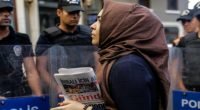
Reporters Without Borders urges Turkey to rescind draconian state of emergency decrees
Two months after responding to a coup attempt by declaring a state of emergency, the Turkish government continues to target journalists, pluralism and freedom of information. RSF is today publishing a reportthat details the many abuses and urges the government to return to democratic principles.

European Parliament calls for fair trial of suspects arrested in anti-coup operations in Turkey
Members of the European Parliament (EP) discussed developments following the July 15 failed coup attempt in Turkey at a session on Tuesday and stressed the need for the fair trial of suspects who have been arrested on coup charges.




















